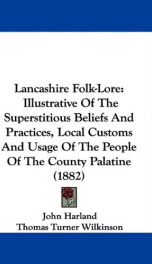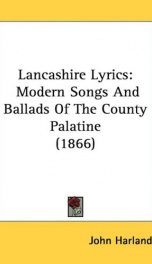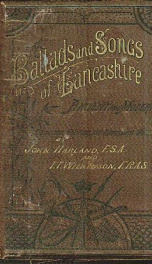LANCASHIRE FOLK-LORE lLLUSTRATIVE OF THE SUPERSTITIOUS BELIEFS AND PRACTICES, LOCAL CUSTOMS AND USAGES OF THE PEOPLE OF THE COUNTY PALATINE - PREFACE. - FOLK-LORE, though a term that will not be found in our standard dictionaries, from Johnson down to Webster, is nevertheless simply a modern combination of two genuine oId English words-Folc, the folk, the people, the common people j and Ur, Lam, bra, learning, doctrine, precept, law. In the earlier days of our English tongue, folk-land, folk-gemote, folk-right were terms in common use, and amongst this class of compound words our fore-elders bad fok-lure, by which they denoted plain, simple teaching suited for the people, what we should now call popular instruction, and hence folk-lure a meant a sermon. Folk-Lore, in its present signification-and for its general acceptance we are largely indebted to the Editor of that valuable periodical Nodes and Queries,- means the notions of the folk or people, from childhood upwards, especially their superstitious beliefs and practices, as these have been banded down from generation to genera- tion, in popular tradition and tale, rhyme, proverb, or saping, and it is well termed FoIk-Lore in contradistinction to book-lore or scholastic learning. It is the unlearned peoples inheritance of tradition from their ancestors, the modern reflection of ancient faith and usage. This Folk-Lore has not been wholly without record in our literature, Hone in his delightful Every-Day Bad, Year Book, and Tabk Book, has preserved many a choice bit of Englands Folk-Lore and his example has been ably............





